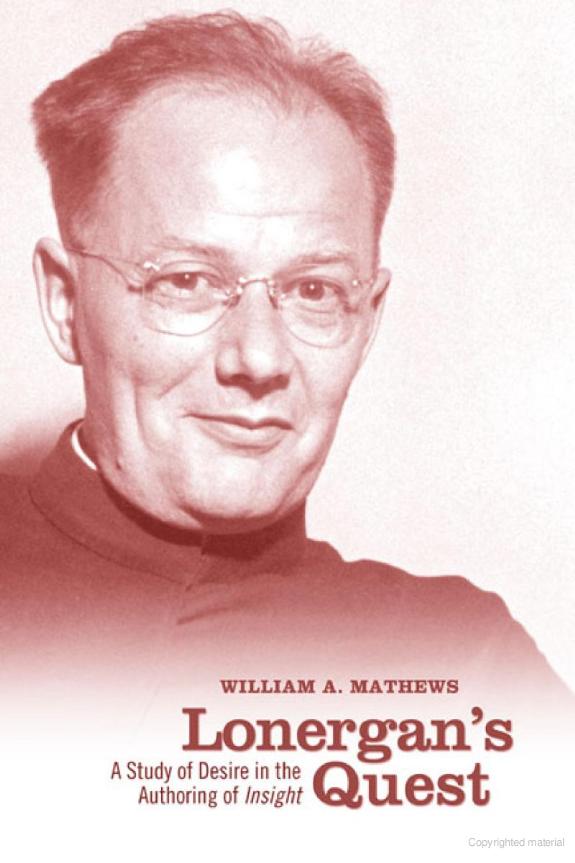
AnthonyFlood.com
Philosophy against Misosophy

Bias, Liberation, and Cosmopolis
Bernard J. F. Lonergan, S.J.
8.3 Alternatives of the Longer Cycle
What is the subsequent course of the longer cycle generated by the general bias of common sense? In so far as the bias remains effective, there would seem to be only one answer.
The totalitarian has uncovered a secret of power. To defeat him is not to eliminate a permanent temptation to try once more his methods. Those not subjected to the temptation by their ambitions or their needs, will be subjected to it by their fears of danger and by their insistence on self-protection.
So in an uneasy peace, in the unbroken tension of a prolonged emergency, one totalitarianism calls forth another. On an earth made small by a vast human population, by limited natural resources, by rapid and easy communications, by extraordinary powers of destruction, there will arise sooner or later the moment when the unstable equilibrium will seem threatened and the gamble of war will appear the lesser risk to some of the parties involved.
If the war is indecisive, the basic situation is unchanged.
If it is totally destructive, the longer cycle has come to its end.
If there results a single world empire, then it inherits both the objective stagnation of the social surd and the warped mentality of totalitarian practicality; but it cannot whip up the feverish energy of fear or of ambition; it has no enemy to fight; it has no intelligible goal to attain.
Common sense, on the other hand, has no use for any theoretical integration, even for the totalitarian integration of common-sense practicality. It will desert the new empire for the individual or group interests that it understands.
This centrifugal tendency will be augmented by the prepossessions and prejudices, the resentments and hatreds, that have been accumulating over the ages; for every reform, every revolution, every lower viewpoint overstates both the cast: in its own favour and the case against those it would supersede; from each generation to the next there are transmitted not only sound ideas, but also incomplete ideas, mutilated ideas, enthusiasms, passions, bitter memories, and terrifying bogies.
In this fashion, the objective social surd will be matched by a disunity of minds all warped but each in its private way. The most difficult of enterprises will have to be undertaken under the most adverse circumstances and, under the present hypothesis that the general bias of common sense remains effective, one cannot but expect the great crises that end in complete disintegration and decay.
Still, on the assumption of emergent probability, nothing is inevitable. Indeed, the essential logic of the distorted dialectic is a reversal.
For dialectic rests on the concrete unity of opposed principles; the dominance of either principle results in a distortion, and the distortion both weakens the dominance and strengthens the opposed principle to restore an equilibrium.
Why, then, is it that the longer cycle is so long? Why is the havoc it wreaks so deep, so extensive, so complete? The obvious answer is the difficulty of the lesson that the longer cycle has to teach.
Nor are we quite without hints or clues on the nature of that lesson. On the contrary, there is a convergence of evidence for the assertion that the longer cycle is to be met, not by any idea or set of ideas on the level of technology, economics, or politics, but only by the attainment of a higher viewpoint in manís understanding and making of man.
In the first place, the general bias of common sense cannot be corrected by common sense, for the bias is abstruse and general, and common sense deals with the particular.
In the second place, man can discover how present insights and decisions influence through emergent probability the occurrence of future insights and decisions; as he can make this discovery, so he can use it, not only in shaping individual biographies and educating children in the image of their parents and of the state authorities, but also in the vastly more ambitious task of directing and in some measure controlling his future history.
In the third place, the longer cycle of western civilization has been drawing attention repeatedly to the notion of a practical theory of history.
It was conceived in one manner or another by Vico in his Scienza nuova, by Hegel, and by Marx.
It has exercised a conspicuous influence on events through the liberal doctrine of automatic progress, through the Marxian doctrine of class war, through the myths of nationalist totalitarianism.
In the fourth place, a remedy has to be on the level of the disease; but the disease is a succession of lower viewpoints that heads towards an ultimate nihilism; and so the remedy has to be the attainment of a higher viewpoint.
As there is evidence for the necessity of a higher viewpoint, so also there is some evidence on its nature.
Inquiry and insight are facts that underlie mathematics, empirical science, and common sense.
The refusal of insight is a fact that accounts for individual and group egoism, for the psychoneuroses, and for the ruin of nations and civilizations.
The needed higher viewpoint is the discovery, the logical expansion and the recognition of the principle that intelligence contains its own immanent norms and that these norms are equipped with sanctions which man does not have to invent or impose.
Even in the sphere of practice, the last word does not lie with common sense and its panoply of technology, economy and polity; for unless common sense can learn to overcome its bias by acknowledging and submitting to a higher principle, unless common sense can be taught to resist its perpetual temptation to adopt the easy, obvious, practical compromise, then one must expect the succession of ever less comprehensive viewpoints and in the limit the destruction of all that has been achieved.